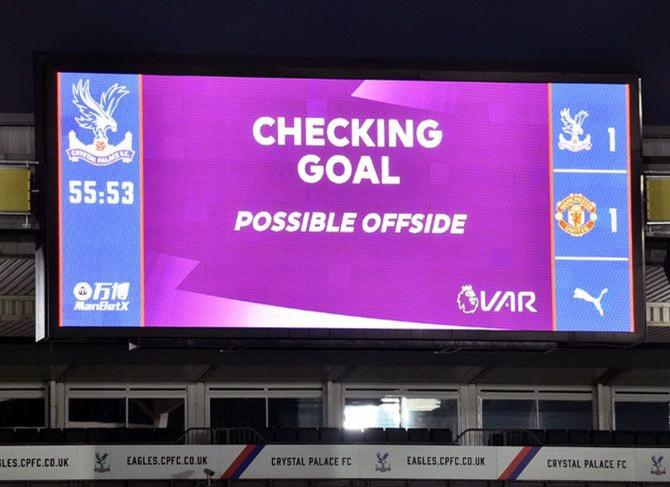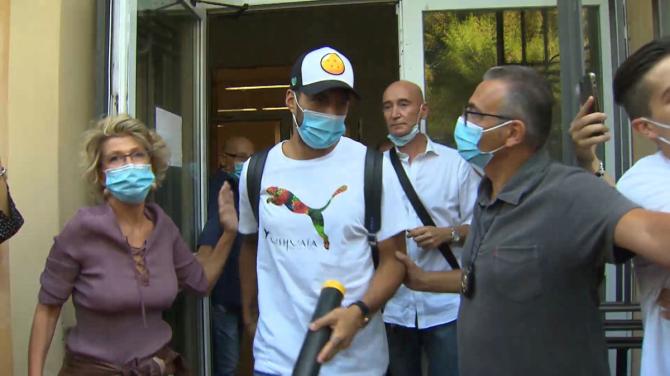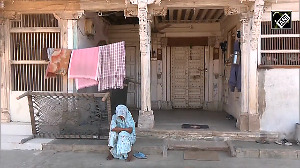
FIFA wants to improve the offside rule, currently the source of frequent controversy, but it is difficult to find a consensus among the experts discussing the matter, the head of the global soccer body Gianni Infantino said on Friday.
The introduction of VAR technology has allowed officials to identify offsides which would be imperceptible to the naked eye.
But many feel that, although technically correct, marginal offsides are not in the spirit of the game, especially when it takes several minutes to reach a decision.
"The offside rule has evolved over the last 100 years and we are now discussing it again," Infantino told a news conference.
"We are looking to see if we can make the offside rule better, not because of VAR but because we want to foster offensive football.
"So, the question is, should we give more advantage to the attacking player, which is how offside has evolved over the years, and would it help if there were no more marginal offsides," he added. "These are the discussions which are currently taking place."
The issue is being discussed by soccer's rule-making body IFAB, where FIFA has half of the eight votes, and Infantino said it was not easy to find common ground among its experts, which include former players and referees.
"You usually have split views and opinions," he said.
Infantino also made his customary defence of VAR which he made one of his priorities after being elected in 2016 and which was introduced in time for the 2018 World Cup.
"VAR is helping football, it's certainly not damaging football, I think also we have to remember it was introduced two years ago, not 200 years ago," he said.
He added that some mistakes were made because many referees still lacked experience with the technology.
"A lot of these referees didn't grow up with VAR," Infantino said.
Juventus tried to 'speed up' Suarez naturalisation, say prosecutors

Serie A champions Juventus on Friday said their sporting director Fabio Paratici had been placed under criminal investigation over the alleged attempt to speed up procedures to gain Italian citizenship for Uruguay striker Luis Suarez.
Suarez, whose wife is of Italian descent, passed the exam in September at the University for Foreigners in Perugia as part of the naturalisation process needed for his potential transfer to the Serie A champions.
Juventus, who hoped to sign him from Barcelona needed him to acquire Italian citizenship to avoid exceeding their permitted quota of non-EU players, but suspicions were quickly raised in the media that he was given preferential treatment.
In a statement, Juventus denied any wrongdoing and said they were confident investigation would soon clarify Paratici's position.
A statement by Perugia chief prosecutor Raffaele Cantone said that Juventus management "took action, even at the highest institutional levels, to 'speed up' the granting of Italian citizenship for Suarez."
"It emerged that the contents of the test had been communicated in advance to the player himself and the result and the score of the exam had been predetermined in order to correspond to the requests made by Juventus," the prosecutor statement said.
Four university officials were suspended for eight months as a precautionary measure. The university has denied wrongdoing.
The prosecutors said they were still investigating whether "individuals other than those belonging to the university" may have committed an offence.
Suarez, 33, obtained the intermediate B1 qualification required for citizenship in 15 minutes, his examiner said after the test, having only done the oral part of the exam.
Suarez was eventually signed by Atletico Madrid while Juventus signed Spaniard Alvaro Morata to strengthen their attack.












 © 2025
© 2025